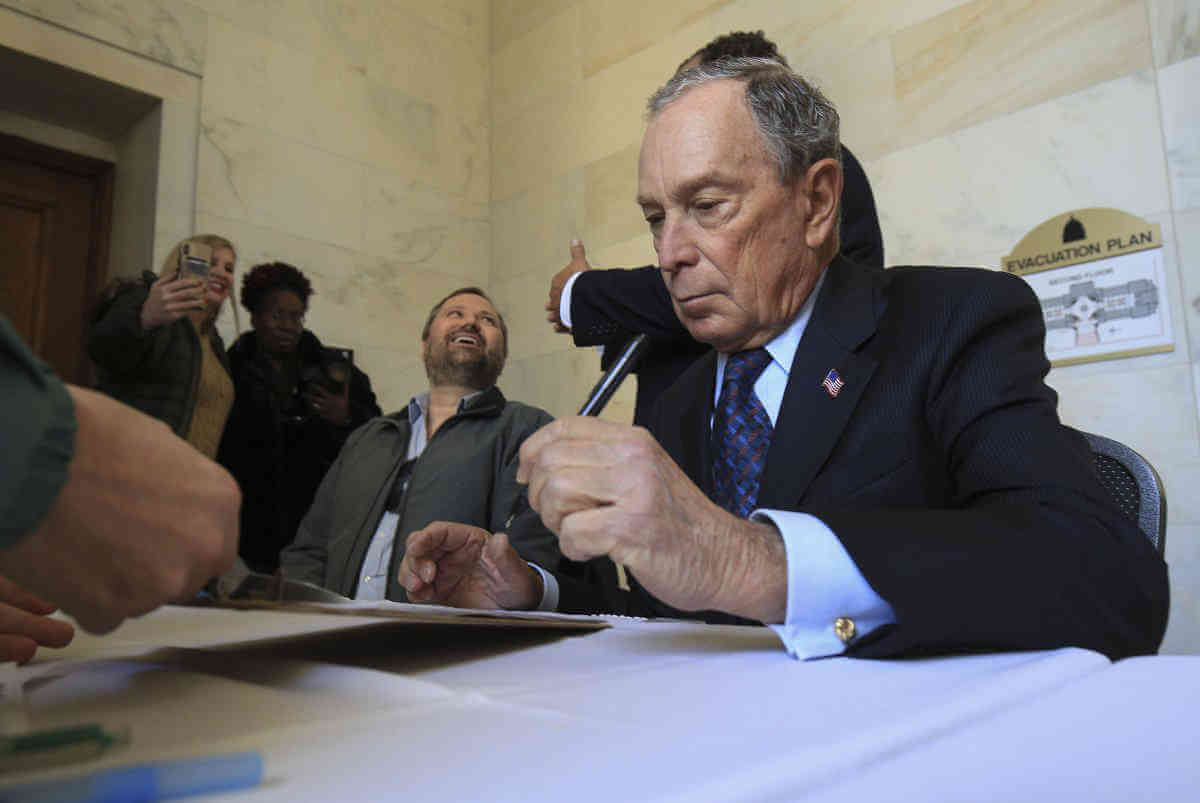The Democratic presidential primary got a shakeup last week when former Mayor Michael Bloomberg began taking steps toward formally entering the race.
After the word got out that he filed paperwork to enter next year’s Alabama Primary, the news spread quickly, as did the reaction to his potential late entry into the crowded field of candidates.
Most of the reaction was mixed, to say the least, with some suggesting his late bid would upset the Democrats’ apple cart in their bid to defeat President Trump. Pundits also pointed to Bloomberg’s rather moderate position — with some believing it a strength, and others seeing it as a liability.
The former three-term mayor wouldn’t be the first presidential candidate to jump into his party’s primary within a year or less from the actual presidential election. History shows the results have been mixed.
The late Senator Robert F. Kennedy joined the race in March 1968, shortly after the New Hampshire Primary, and was seemingly on his way to the nomination when tragedy struck. Retired General Wesley Clark also joined a wide-open Democratic field in 2003 after a public draft movement, but his campaign fizzled out within weeks.
How will former Mayor Bloomberg perform? That’s up to him — and, more importantly, the voters.
His three terms as mayor of the nation’s largest city were largely successful, as he helped lead the rebuilding effort following the Sept. 11, 2001 terrorist attacks. Bloomberg also spurred further development across the five boroughs and helped diversify its economy by attracting businesses in a wider variety of fields from healthcare to technology.
Bloomberg’s record certainly qualifies him to be part of the presidential conversation.
As for moderation and moderate candidates, we don’t believe either should be eschewed by the voters.
Even before Bloomberg’s entry into the race, candidates like former Vice President Joe Biden and South Bend, Indiana Mayor Pete Buttigieg were getting a raw deal because they’re not as far to the left as others.
But moderation is a strength because polarization leads to dysfunction, as we have seen during the current administration. We believe most American voters want someone who will tilt left or right, but stay grounded toward the center and put the country — not the party — first.
We’ll find out in time if that candidate is Bloomberg or someone else from the Democratic field. Either way, the Democrats need to get it right — as another four years of Donald Trump would be disastrous for the country.





















